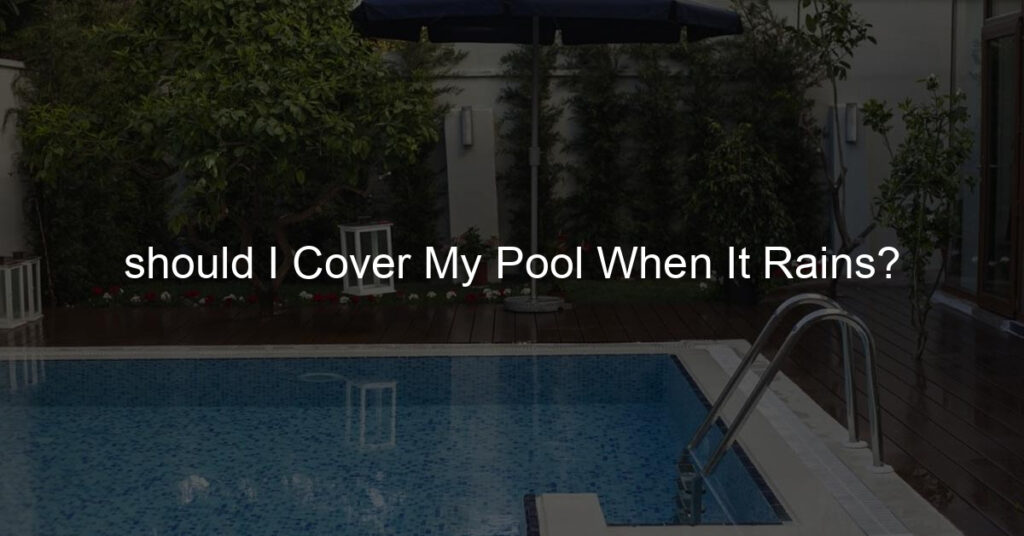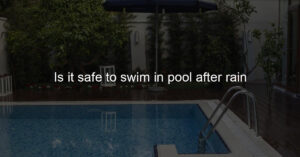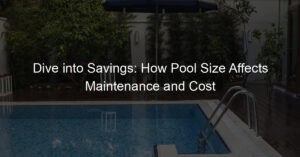Introduction: The Dilemma of Pool Owners During Rainy Season
Home swimming pools are a fantastic way to cool off during the hot summer months, but they also come with their own set of challenges. One of the most common dilemmas that pool owners face is how to manage their pools during the rainy season. This article aims to address these concerns and provide practical solutions.
- Understanding the common concerns of home pool owners
- As a pool owner, you may have a number of concerns when it comes to maintaining your pool during the rainy season. These may include issues like water balance, pool contamination, and equipment damage. Rainwater can dilute the chemicals in your pool, making it less effective at keeping the water clean and safe. It can also introduce debris and other contaminants into your pool, leading to algae growth and other problems. Additionally, heavy rain can cause damage to your pool equipment, including your pump and filter system.
- Introducing the main question: Should I cover my pool when it rains?
- The question of whether to cover your pool when it rains is a common one among pool owners. While covering your pool can help keep out debris and reduce the impact of rainwater on your pool’s chemical balance, it also comes with its own challenges. For example, a pool cover can be difficult to manage in heavy rain and can even become a safety hazard if improperly secured. This article will delve deeper into this topic, providing you with the information you need to make an informed decision.
By understanding the challenges of maintaining a pool during the rainy season, you can take proactive steps to keep your pool clean and safe. Whether you decide to cover your pool or not, the key is to stay informed and be prepared for whatever storm Mother Nature throws your way.
Understanding the Impact of Rain on Your Pool
As a pool owner, it’s essential to understand how rain can impact your swimming pool. One of the most significant effects of rain is on your pool’s water chemistry. Let’s delve into this topic a bit more.
How Rainwater Affects Pool Water Chemistry
Rainwater can significantly alter the chemistry of your pool water in two primary ways: through dilution and by affecting the pH and chlorine levels in pool walls. Here’s how:
- Explaining the dilution effect of rainwater
- When it rains, the additional water volume can dilute your pool’s chemicals, reducing their effectiveness. This dilution can lead to an imbalance in your pool’s chemistry, making it harder to maintain clear and healthy water. For instance, if your pool’s chlorine level is diluted, it may not effectively kill bacteria and other microorganisms, leading to cloudy water and potential health risks.
- Discussing the impact on pH levels and chlorine concentration
- Rainwater is naturally acidic, which means it can lower your pool’s pH level. A lower pH level can make the water corrosive, damaging your pool’s surfaces and equipment. Additionally, as mentioned earlier, rainwater can dilute the chlorine concentration in your pool. Chlorine is vital for sanitizing your pool and keeping it safe for swimming. A lower concentration means your pool may not be as clean as it should be.
Understanding these impacts on pool chemistry can help you take the necessary steps to maintain your pool’s water chemistry, even during the rainy season. Remember, a well-maintained pool is more enjoyable to swim in and safer for you and your family. (Is it safe to swim in a pool after rain?)
Overflowing Pool: A Common Rainy Season Problem
During the rainy season, one of the most common problems faced by home pool owners is an overflowing pool. This can be due to excessive or heavy rainfall that fills up the pool beyond its capacity. In this section, we will explore what you can do if your pool is overflowing from rain and preventive measures to avoid pool overflow.
- What to do if pool is overflowing from rain
- When your pool starts to overflow due to rain, it’s important not to panic. The first step is to turn off the pool equipment to prevent any damage. Then, you can use a submersible pump or a pool siphon to remove the excess water. It’s important to monitor the water level and stop draining once it reaches the normal level. Remember, it’s better to drain a little at a time and check frequently than to drain too much at once.
- Preventive measures to avoid pool overflow
- Prevention is always better than cure. To avoid overflow, consider installing a pool overflow drain if you don’t already have one. This drain automatically removes excess water when the pool reaches a certain level. Regular pool maintenance, including checking and cleaning the drains, can help prevent overflow. If heavy rain is forecasted, you can also lower the water level in your pool in anticipation.
Remember, an overflowing pool can cause damage to your property and can also disrupt the balance of chemicals in your pool water. Therefore, it’s important to take these steps to prevent and manage pool overflow during the rainy season.
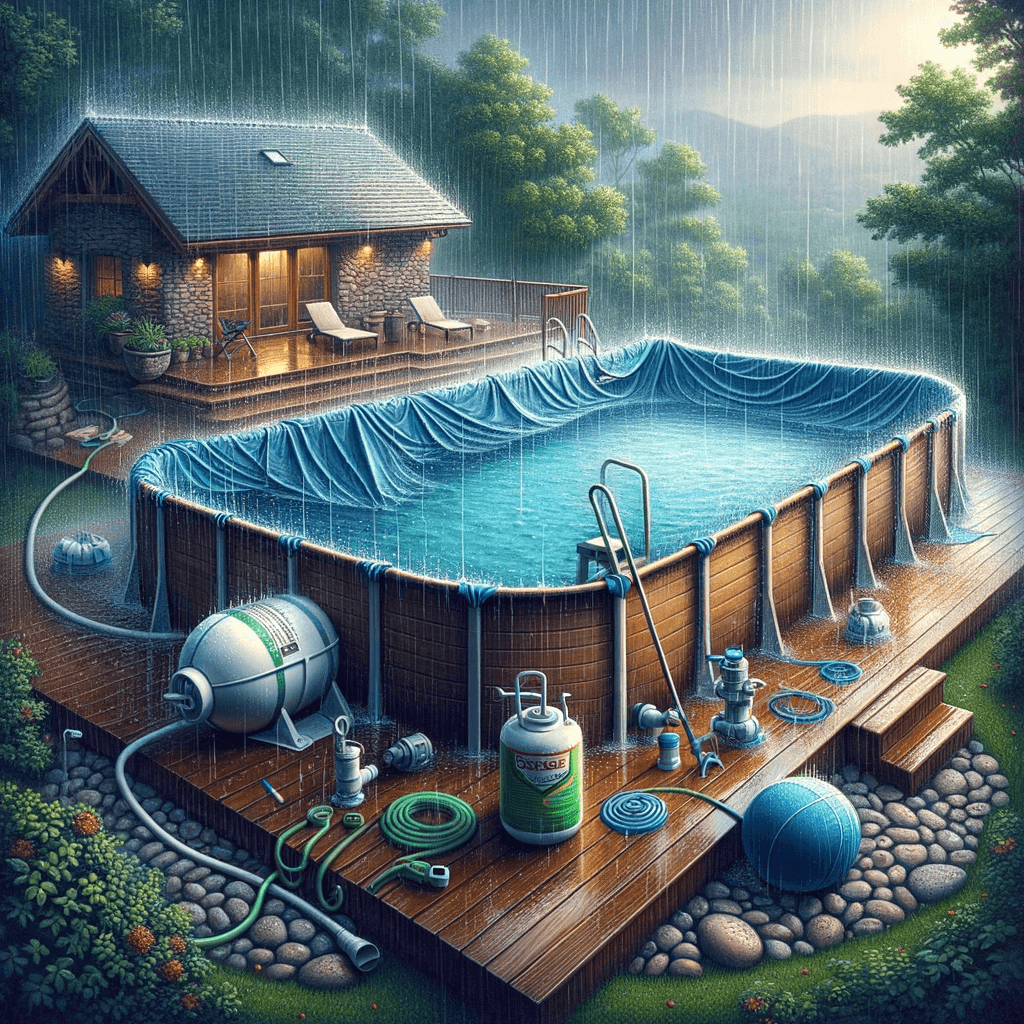
To Cover or Not to Cover: Making the Right Decision
As a pool owner, you might often ask yourself, “Should I cover my pool when it rains?” The answer isn’t as straightforward as you might think. There are several factors to consider, including the type of pool you own and the intensity of the rain. Let’s explore these factors in detail.
Should I Cover My Pool When It Rains?
- Pros and cons of covering your pool during rainCovering your pool during rain can prevent debris from entering your pool, which can save you a lot of cleaning time. It also helps maintain the chemical balance of your pool by preventing excess rainwater from diluting the chemicals. However, covering your pool can also have its drawbacks. For instance, if the rain is heavy, the pool cover might collapse under the weight of the water, causing damage to the cover and potentially the pool itself.
- Should I cover my above-ground pool when it rains?Like in-ground pools, covering an above-ground pool during rain can help keep debris out and maintain the chemical balance. However, due to their structure, above-ground pools are more susceptible to damage from heavy rain. If you decide to cover your above-ground pool, make sure to monitor the rain’s intensity and remove the cover if it becomes too heavy with water.
In conclusion, whether you should cover your pool when it rains depends on your own pool covers specific situation. If the rain is light and you’re worried about debris or maintaining your pool’s chemical balance, then covering your pool might be a good idea. However, if the rain is heavy, it might be safer to leave your pool uncovered to prevent damage. Always remember that the safety and longevity of your pool should be your top priority.
How to Keep Pool Cover from Filling with Rain
Keeping your pool cover free from rainwater is crucial to maintain its effectiveness and longevity. Here are some practical ways to prevent rainwater accumulation and ensure your pool remains clean and safe.
- Effective ways to prevent rainwater accumulation on pool cover
- Preventing rainwater from accumulating on your pool cover is not as difficult as it may seem. Here are some effective methods:
- Proper Installation: Ensure your pool cover is properly installed. It should be tight and secure, with no sagging areas where water can accumulate.
- Use of Air Pillows: Air pillows are used to create a slope on the pool cover, allowing rainwater to slide off. They are placed in the center of the pool before the cover is installed.
- Regular Cleaning: Regularly remove leaves and other debris from the pool cover. This prevents blockages and allows rainwater to flow off the cover more easily.
- Using a pool cover pump to remove excess water
- A pool cover pump is a handy tool that can help you manage rainwater accumulation on your pool cover. It works by automatically pumping out water that collects on the cover.Here’s how to use it:
- Place the pump in the center of the pool cover, where water tends to accumulate.
- Connect the pump to a power source and turn it on.
- The pump will automatically remove excess water, keeping your pool cover dry and safe.
Remember, a pool cover pump is not a set-and-forget solution. You should regularly check and maintain it to ensure it’s working properly.
In conclusion, keeping your pool cover free from rainwater requires proper installation, regular cleaning, and tools like a pool cover pump. By following these steps, you can ensure your pool cover remains effective and your pool stays clean and safe, even during the rainy season.
Pool Maintenance Tips During Rainy Season
As a pool owner, the rainy season can bring about a unique set of challenges. However, with the right knowledge and a few handy tips, you can keep your pool clean and safe. One of the most common questions asked is whether to turn off the drain of your pool pump when it’s raining. Let’s delve into this topic.
Should I Turn Off Pool Pump When Raining?
Understanding the role of the pool pump and knowing when to turn it off can help maintain the quality of your pool water during the rainy season.
- Understanding the role of the pool pump during rain: The pool pump plays a crucial role in circulating and filtering your pool water. During the rain, debris, dirt, and other contaminants can get into your pool. The pool pump helps to filter these out, keeping your pool clean. However, if the rain is heavy and accompanied by thunderstorms, it may be safer to turn off the pool pump. Learn more about the role of a pool pump here.
- When and why to turn off the pool pump: If there is a risk of electrical storms, it’s advisable to turn off the pool pump to prevent potential electrical damage. Additionally, if the water level in your pool rises too high due to heavy rain, it may be necessary to turn off the pump to prevent it from being damaged. However, in light to moderate rain, keeping the pump running can help filter out contaminants and maintain water clarity.
Remember, every swimming pool maintenance call and weather condition is unique. Always monitor your pool closely during the rainy season and adjust your maintenance routine as necessary.
Should I Shock My Pool Before or After It Rains?
As a pool owner, you might wonder whether it’s best to shock your pool before or after it rains. Let’s delve into this topic to provide you with a clear understanding.
- Explaining the process of shocking a pool
- Shocking a pool is a crucial part of pool maintenance. It involves adding many chlorine or non-chlorine chemicals to kill bacteria, algae, and other organic contaminants. This process helps to maintain the cleanliness and safety of your pool water. It’s typically done weekly or when the pool water appears cloudy or has a strong chlorine smell. Learn more about shocking a pool here.
- Best practices for shocking your pool during rainy season
- During the rainy season, your pool is exposed to additional contaminants from the rainwater. Rain can introduce algae spores and other pollutants into your pool, upsetting the chemical balance. Therefore, it’s generally recommended to shock your pool after it rains.Here’s why: Rainwater can dilute the chemicals in your pool, making them less effective. If you shock your pool before it rains, the rainwater can dilute the shock treatment, reducing its effectiveness. On the other hand, shocking your pool after it rains helps to eliminate the contaminants introduced by the rainwater, restoring the chemical balance of your pool.However, it’s important to note that you should wait until the rain has stopped before shocking your pool. Shocking during a rainstorm is not only ineffective but can also be dangerous due to the risk of lightning.
In conclusion, while the process of shocking a pool is straightforward, timing is crucial, especially during the rainy season. Always remember to shock your pool after it rains to ensure the treatment’s effectiveness and to protect your pool’s cleanliness and safety.
Conclusion: Ensuring a Clean and Safe Pool Despite the Rain
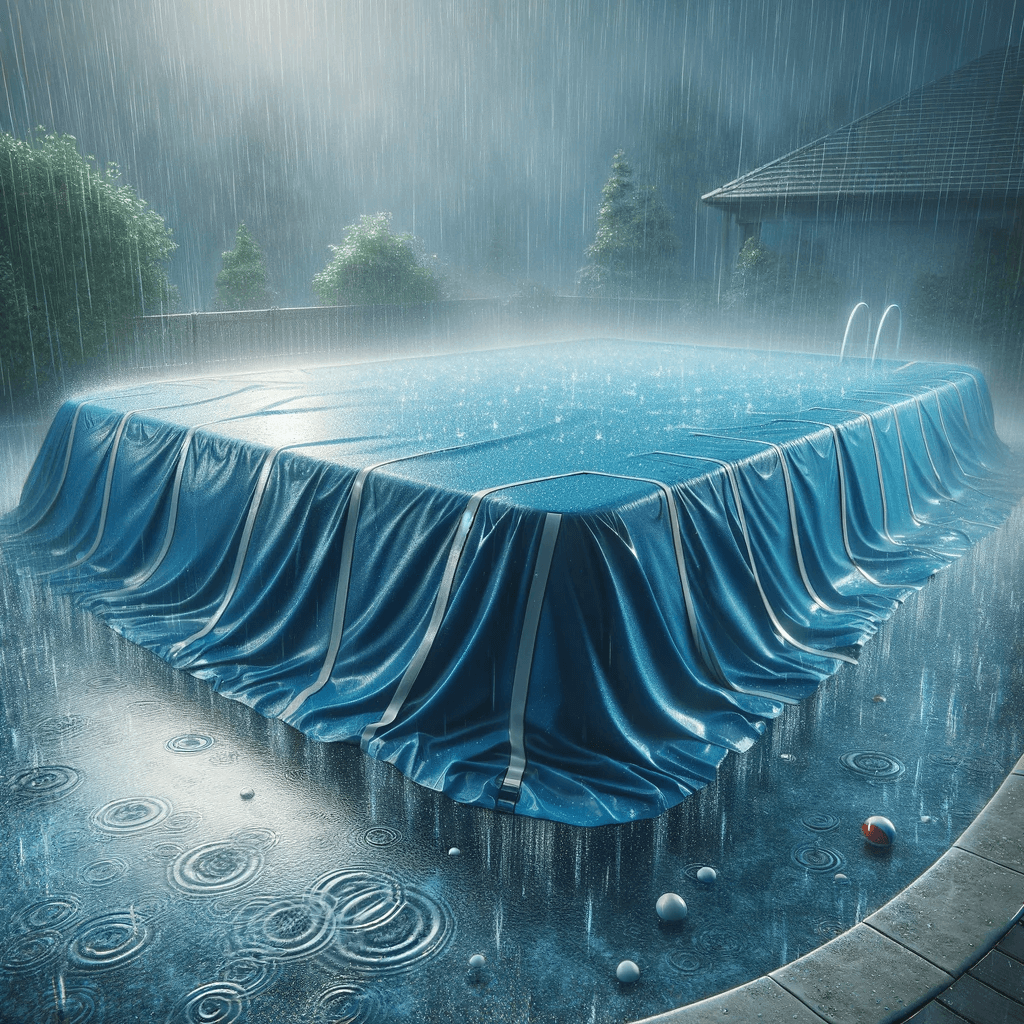
As we reach the end of our discussion on maintaining a home swimming pool during the rainy season, let’s take a moment to recap the key points we’ve covered. Our goal is to empower you, the home pool owner, with the knowledge and tools necessary to keep your pool clean, safe, and enjoyable, regardless of the weather.
- Recap of key points discussed:
- We started by understanding the impact of rain on your pool, highlighting how excess water can dilute chemicals and introduce contaminants. We then discussed the dilemma of whether to cover your pool during rain, concluding that it depends on factors like the intensity of the rain and the type of pool cover you have.Next, we shared some practical pool maintenance tips for the rainy season. These included regular testing and adjusting of water chemistry, cleaning and inspecting the pool and its equipment, and considering a professional pool service for more complex tasks.
- Encouraging proactive pool maintenance for home pool owners:
- Remember, the key to a clean and safe pool is proactive maintenance. Don’t wait for problems to arise before you take action. Regularly monitor your pool’s condition, especially during the rainy season, and address issues as soon as they appear. This ensures a healthier and safer swimming environment and can save you time and money in the long run.
With the right knowledge and a proactive approach, you can enjoy your home swimming pool all year round, rain or shine. So, don’t let the rain dampen your spirits or your swimming routine. Instead, use it as an opportunity to become a more informed and proactive pool owner.

